Jasimuddin's Poetic Legacy in Colonial Bengal: His Contributions to Bengali Muslim Literature
Introduction
Colonial Bengal was a melting pot of cultures, religions, and languages, where literature played a pivotal role in shaping identities and preserving cultural heritage. Jasimuddin (1903-1976) emerged as a significant figure in Bengali literature, contributing not only to the literary world but also to the representation of the Muslim community. His writings, published in various magazines and newspapers, were crucial in fostering intercultural and interreligious dialogue during a time of great social and political change.
Jasimuddin, a notable figure in Bengali literature, went beyond being a literary luminary; he became a symbol of unity and representation for the Muslim community. Through his writings, published in various periodicals, he catalysed a meaningful intercultural and interreligious dialogue during a time of substantial social and political transformation. His work not only captured the essence of rural Bengal but also transcended religious and linguistic boundaries, fostering an environment of mutual understanding and appreciation among the diverse communities that coexisted in Colonial Bengal.
Biography of Jasimuddin
Early Life
Jasimuddin, the eminent poet of colonial Bengal, was born in Faridpur, a district renowned for its lush countryside and cultural diversity. His early life was deeply rooted in the vibrant cultural milieu of rural Bengal. Growing up in a traditional Bengali Muslim family, Jasimuddin was exposed to the rich heritage of Bengali literature and culture from a very young age. This early exposure laid the foundation for his lifelong connection to the literary and cultural traditions of the region.
Education
Jasimuddin's educational journey played a pivotal role in shaping his literary prowess. He received his formal education in two significant urban centers of the region: Dhaka and Calcutta. Dhaka, the capital of present-day Bangladesh, was known for its vibrant literary and intellectual circles. He pursued his education at the University of Calcutta, where he completed his MA in Bangla literature. Calcutta, on the other hand, was the intellectual and cultural hub of colonial India. These cities provided Jasimuddin with access to diverse literary traditions, languages, and a wealth of intellectual resources.
During his educational years, Jasimuddin honed his language skills and expanded his literary horizons. His exposure to both Bengali and Urdu, as well as other languages, enriched his linguistic repertoire, enabling him to draw from a wide range of influences in his poetic endeavours.
Contributions and Legacy
Jasimuddin's literary works primarily revolved around rural life and the folk traditions of Bengal. He is best known for his collection of poems and songs, particularly "Nakshi Kanthar Math" (The Field of the Embroidered Quilt), which beautifully captures the essence of rural Bengal and its people. His works are marked by a deep sense of nostalgia, love for the countryside, and an intimate understanding of the daily lives of rural communities.
Jasimuddin was not just a poet but also a dedicated folklorist. He spent significant time collecting and documenting rural folklore, songs, and traditions. His efforts were instrumental in preserving the oral traditions of Bengal for future generations.
Jasimuddin's contributions to Bengali literature have left an enduring legacy. He is celebrated for his ability to bridge the gap between urban and rural cultures, and his writings have continued to inspire generations of poets and writers. He is often regarded as the "Polli Kobi" or "Rural Bard" for his profound impact on rural literature.
Jasimuddin received several awards and honours during his lifetime, including the President's Award for his contributions to Bengali literature. His poems and songs continue to be popular and have been adapted into various forms of media.
Later Life
Jasimuddin spent the latter part of his life in Kushtia, Bangladesh, where he worked as a college teacher. He passed away on March 13, 1976, leaving behind a rich literary and cultural legacy.
Jasimuddin's Poetic Style
Jasimuddin's poetry is celebrated for its simplicity, depth, and strong connection to rural life, often making him regarded as a pioneer of pastoral poetry in Bengali literature. His work is firmly rooted in the rural landscapes and everyday life of Bengal, portraying the simplicity, beauty, and challenges of rural existence with remarkable realism. His poems often depict the lives of farmers, fishermen, laborers, and other rural inhabitants, capturing their struggles and joys, which resonate deeply with readers familiar with rural life.
Jasimuddin's poetry is deeply intertwined with Bengali folklore and traditions. He draws extensively from local folk songs, stories, and cultural practices, infusing his work with an authentic, folkloric flavour that makes his poetry relatable and resonant with common people. This connection to folklore preserves cultural narratives and traditions through his verses.
He frequently employs natural imagery to convey emotions and themes, using elements of nature, such as rivers, fields, and seasons, as metaphors to explore human experiences and emotions. This use of nature lends a vivid and picturesque quality to his verses, creating an immersive experience for readers and connecting human life with the natural world.
A prevalent theme in Jasimuddin's poetry is nostalgia, often expressing a deep longing for the simplicity and innocence of rural life. This nostalgia for the past and the vanishing traditions is a recurring motif that tugs at the heartstrings of his readers, evoking a sense of yearning for a bygone era.
His poetry is rich in human emotions and experiences, depicting love, loss, joy, and sorrow with poignancy. These universal themes and relatable human experiences make his work timeless and emotionally impactful. Known for its simplicity and accessibility, Jasimuddin's poetry eschews complex and ornate language, making it easy to understand and appreciate, even for those not well-versed in literature. This simplicity enhances its reach and impact.
He often used traditional Bengali poetic forms, such as "Kavigan" and "Baul," to convey his messages, adding cultural authenticity to his poetry and grounding it in the rich literary and musical heritage of Bengal. His use of these forms also helped popularise them and ensure their continued relevance.
While celebrating rural life and traditions, Jasimuddin's poems offer subtle social and cultural commentary, highlighting issues such as poverty, class distinctions, and the changing dynamics of rural society. Through his poetry, Jasimuddin not only preserved the cultural heritage of Bengal but also engaged with contemporary social issues, offering insights and critiques that remain pertinent today.
Themes in Jasimuddin's Poetry
Jasimuddin's poetry explores a wide range of themes, from the beauty of rural Bengal to the struggles and aspirations of common people. His works often revolve around nature, love, human emotions, and the socio-economic conditions of his time. This section discusses the key themes in his poetry and their relevance in the colonial context.
Central to Jasimuddin's work is his portrayal of rural life in Bengal. He captures the daily struggles, joys, and challenges faced by rural communities, from farmers to fishermen, vividly depicting the rustic beauty and simplicity of village life. A recurring theme is his deep connection to Bengali folklore and traditional practices. He celebrates folk songs, stories, rituals, and cultural traditions, using them as a source of inspiration and a means of preserving Bengal's cultural heritage.
Jasimuddin's poems often express a profound sense of nostalgia, longing for the bygone days of his childhood and the vanishing traditions of rural life. This theme of nostalgia for a simpler, more innocent past is a hallmark of his work. Love, affection, and human relationships are common themes, exploring emotions of love, separation, and longing with tenderness and emotional depth.
The natural world plays a significant role in his poetry, often using natural imagery to convey emotions and moods. He draws inspiration from changing seasons, rivers, and landscapes to reflect the human experience. While celebrating rural life, Jasimuddin's poetry also delves into social issues, addressing topics such as poverty, class disparities, and the changing dynamics of rural society. His work subtly comments on the social and economic challenges faced by the rural population.
Jasimuddin's poetry portrays the resilience of the human spirit in the face of adversity, highlighting the strength and determination of the rural populace in coping with life's hardships. His poems often explore the concept of cultural identity, celebrating the uniqueness of Bengali culture and traditions, contributing to the preservation of cultural identity by documenting and celebrating local customs and practices.
Occasionally, Jasimuddin incorporates spiritual and mystical elements into his poetry, drawing from the Baul tradition and exploring themes of divine love, inner spirituality, and the mystic's journey. His work emphasises the importance of community and unity, portraying the communal bonds that tie the people of the village together, fostering a sense of belonging and togetherness.
Representation of Muslim Identity
One of the pivotal aspects of Jasimuddin's literary corpus is his role in representing the Bengali Muslim identity during a crucial period in colonial Bengal. The 20th century marked a dire need for a cultural renaissance among Bengal's Muslim populace, and literature emerged as a powerful instrument of cultural reawakening. Jasimuddin's poetic portrayal of Muslim life, traditions, and ethos facilitated dialogue between diverse communities and engendered a sense of unity, exemplified by his evocative verses that celebrated the rich tapestry of Muslim culture within the Bengali context.
The representation of Muslim identity in Bengal, as reflected in Jasimuddin's contributions to Bengali literature, is a multi-dimensional and culturally rich exploration. Bengal's Muslim community is diverse, with variations in language, culture, and regional practices, and Jasimuddin's work acknowledges and celebrates this diversity. His writings provide a platform for the representation of different facets of Muslim identity in the region, emphasising the cultural syncretism that characterises Bengal.
Jasimuddin's poetry offers a lens into the daily lives, customs, and traditions of rural Muslims, showcasing the unique aspects of their way of life. He delves into the socio-economic challenges faced by Muslim communities, giving voice to their concerns. Importantly, his work underlines the historical religious tolerance and inclusivity of Bengal, highlighting the coexistence of Hindu and Muslim traditions and values, promoting unity and shared cultural practices.
Through his literary endeavors, Jasimuddin champions the preservation of Muslim cultural heritage, ensuring that it continues to thrive and remains an integral part of Bengal's identity. His poetry serves as a platform for addressing the issues faced by marginalised and underprivileged Muslim communities, contributing to a more inclusive representation of Muslim identity. In sum, Jasimuddin's work paints a comprehensive picture of the complexities, richness, and unity within Muslim identity in Bengal.
Contributions to Magazines and Newspapers
One of the most striking aspects of Jasimuddin's literary career was his contributions to magazines and newspapers. He regularly published his poetry in various notable publications, including "Saogat" (founded in 1918), "Probashi" (a Bengali literary magazine founded in 1921), and "Bichitra" (a renowned Bengali literary magazine founded in 1911). This section explores his engagement with these platforms, demonstrating how they allowed him to reach a wider audience and influence public discourse.
Jasimuddin's engagement with these magazines and newspapers transcended mere publication; it was a channel through which he brought the essence of rural Bengal to a wider urban and literate audience. His verses celebrated the traditions, customs, and folklore of the countryside, enabling readers from diverse backgrounds to immerse themselves in the rustic charm of rural life. He used this engagement not only to depict the beauty and simplicity of rural existence but also to shed light on the challenges faced by rural communities.
Furthermore, Jasimuddin's writings in these periodicals had a profound impact on cultural exchange and intercultural dialogue. He acted as a bridge between the urban and rural cultures of Bengal, fostering a greater understanding of the region's rich cultural diversity. His contributions allowed readers to explore the cultural tapestry of rural Bengal, deeply enriched by its folklore, traditions, and the lives of its inhabitants.
In addition to preserving folklore and celebrating rural life, Jasimuddin used these platforms to advocate for social change. His writings served as a powerful medium for highlighting issues such as poverty, class disparities, and the evolving dynamics of rural society. He was not merely a poet but also a social commentator who, through his contributions, brought to light the pressing concerns of his time.
Jasimuddin's work in these magazines and newspapers also acted as a form of community representation. His writings gave voice to the aspirations and experiences of rural and Muslim communities, making their narratives an integral part of the broader cultural discourse. The recognition and accolades he received for his contributions underscore their significance in preserving the cultural heritage of Bengal and shaping its literary landscape. His literary journey was deeply intertwined with his engagement in magazines and newspapers, allowing him to sow the seeds of cultural understanding and change, ultimately leaving an enduring impact on the literary and cultural fabric of Bengal.
Influence on Contemporary and Future Writers
Jasimuddin's work left a lasting impact on Bengali literature, inspiring many contemporary and future writers. His celebration of rural life and traditions provided inspiration for writers capturing village existence's charm and challenges. His dedication to preserving folklore influenced authors to document and reimagine cultural practices, grounding their work in Bengal's rich traditions.
His use of natural imagery and themes of nostalgia resonated with writers, enriching their narratives. As a social commentator, Jasimuddin's work became a model for addressing social issues and advocating for change. His promotion of tolerance and understanding among diverse communities encouraged writers to build bridges between cultures and religions. His commitment to representing rural and Muslim communities inspired modern authors to prioritise diversity in their storytelling.
Jasimuddin's Role in Cultural Exchange
Jasimuddin's poetry transcended linguistic and religious barriers, fostering dialogue and understanding between different communities in Bengal. Known as the "Rural Bard," he wove together the threads of rural life, folklore, and tradition, drawing readers into the enchanting world of Bengal's countryside.
His poetry served as a bridge between urban and rural Bengal, allowing readers from diverse backgrounds to explore and appreciate the charm of rural life. His words transported readers into a world where every poem painted a vibrant mural of rural existence.
With every poem, Jasimuddin whispered to his readers, "Come, step into this world of traditions and folklore. Feel the breeze on your skin, the taste of village sweets on your tongue, and the rhythms of rural life pulsating in your heart." His legacy as a cultural ambassador lives on, reminding us that through the magical medium of literature, we can traverse time and space to explore the hidden treasures of culture, and in doing so, we become a part of the ever-expanding tapestry of human experience.
Conclusion
Jasimuddin's poetic legacy in colonial Bengal from the 1930s to the 1950s was distinguished by his unique style, exploration of diverse themes, and representation of Bengali Muslim identity. His contributions to magazines and newspapers expanded his reach, making him a cultural icon of his time. His legacy continues to inspire writers and readers, underscoring the enduring power of literature in fostering unity and preserving cultural heritage. Jasimuddin's life and works are a testament to the richness of Bengali literature and its capacity to transcend boundaries and shape society.
Jasimuddin's poetry is not merely words on paper; it captures the soul of rural Bengal. His verses evoke the warm touch of the sun on paddy fields, the gentle murmur of rivers, and the vibrant colours of rural life. His influence flows through contemporary and future writers, inspiring them to explore their cultural roots and celebrate timeless traditions.
His work invites readers to a world where nature and humanity dance in harmony, where nostalgia weaves its bittersweet magic, and where social commentary is interwoven with compassion. As history turns its pages, Jasimuddin's literary legacy remains a guiding star, casting a warm light on the enduring beauty of rural life and the power of literature to bridge cultures and touch the soul.
Reference
- Sen, Sukumar. Jasimuddin. Sahitya Akademi, 1993.
- Ahmed, Wakil. Jasimuddin: A Study of His Life and Work. University Press Limited, 2000.
- Choudhury, Mahfuzur Rahman. Jasimuddin: The Keen Observer of Rural Bengal. Anannya Prakashan, 2013.
- Chowdhury, Iqbal Hossain. "Jasimuddin: The Bard of Bengal." Bangla Academy Journal, vol. 28, 2018, pp. 85-98.
- Haq, M. Ziaul. "Jasimuddin: A Pioneer in Bengali Folk Poetry." Asiatic, vol. 1, no. 1, 2006, pp. 123-136.
- "Jasimuddin." Banglapedia: The National Encyclopedia of Bangladesh, http://en.banglapedia.org/index.php?title=Jasimuddin.
- "Remembering Jasimuddin: The Polymath of Kushtia." The Daily Star, 2018, https://www.thedailystar.net/news/star-weekend/remembering-jasimuddin-the-polymath-kushtia-1578742.
- "Jasimuddin Kobi Protijogita." http://www.kobiprotijogita.org/jasimuddin.html.
- Ahmad Sirhindi: A Spiritual Revivalist of Islamic Thought - Islamonweb
Disclaimer
The views expressed in this article are the author’s own and do not necessarily mirror Islamonweb’s editorial stance.

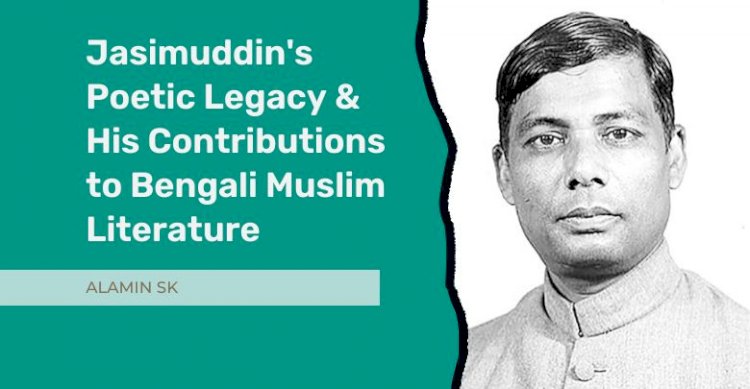


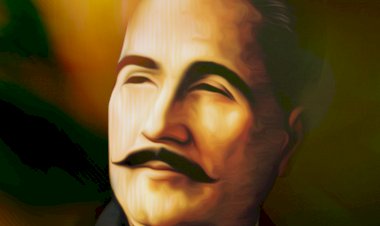
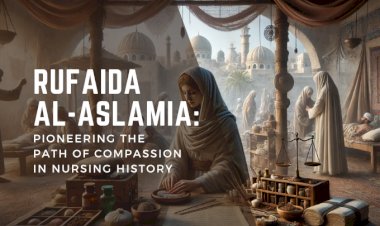
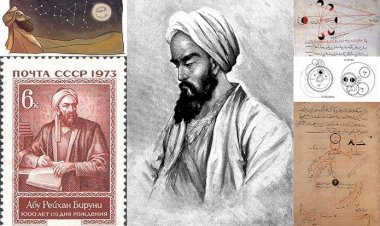
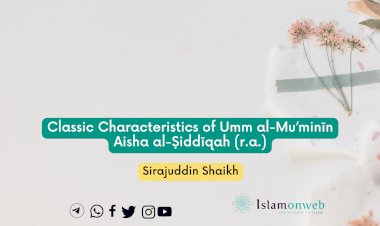
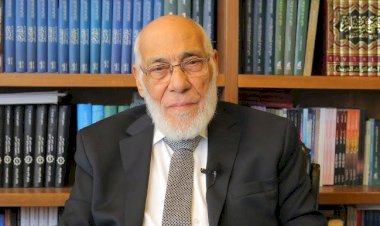
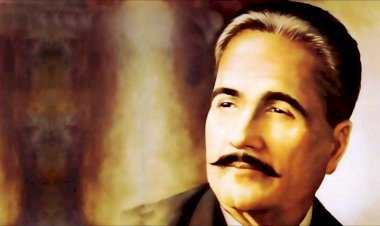














Leave A Comment